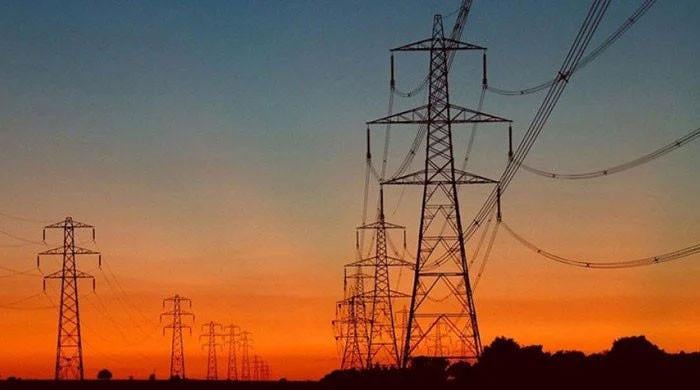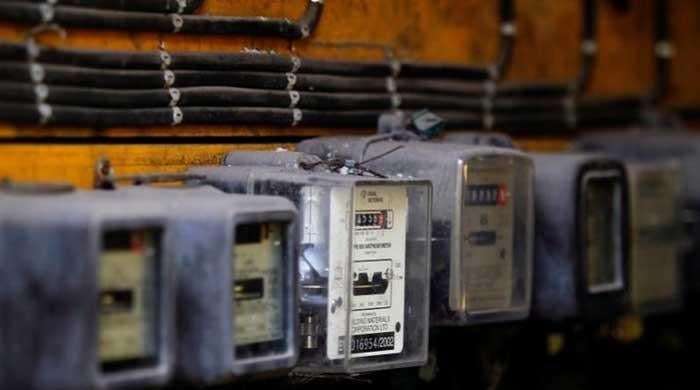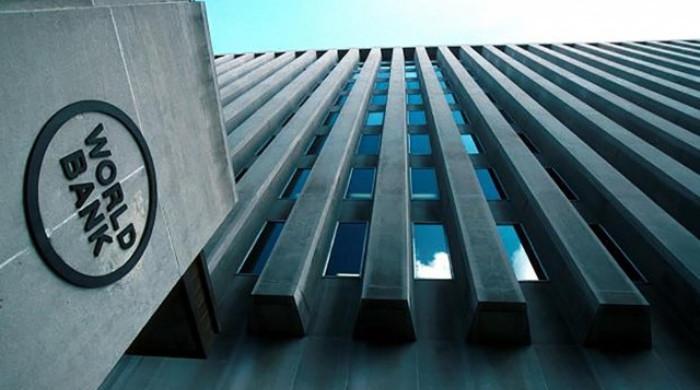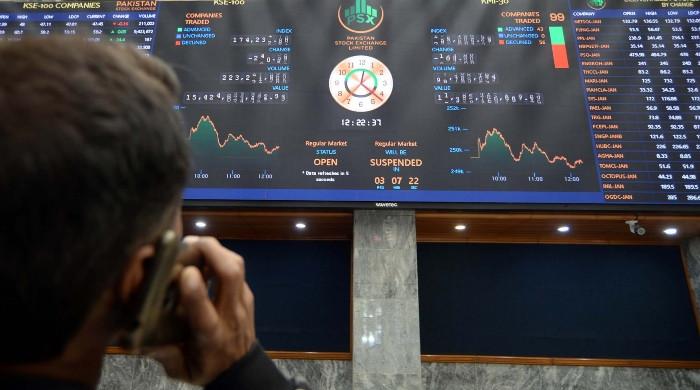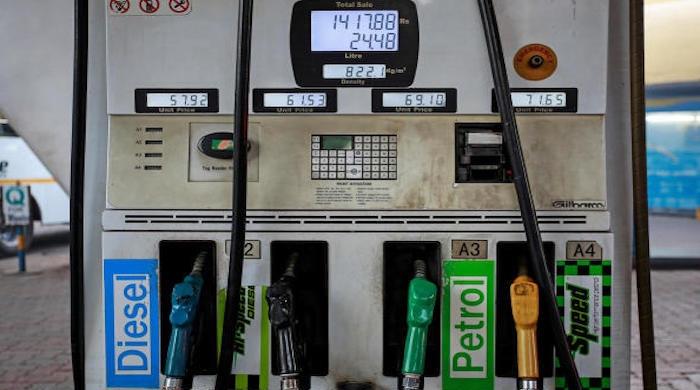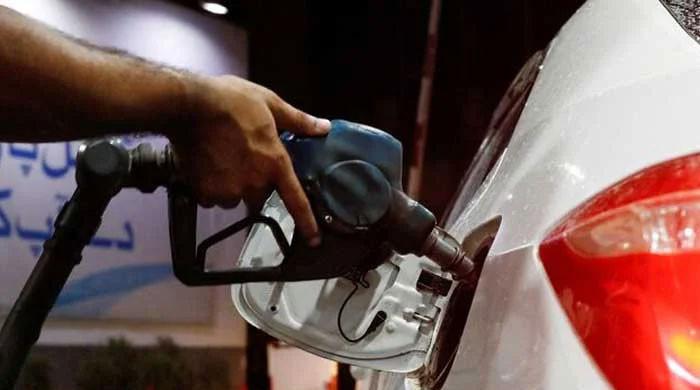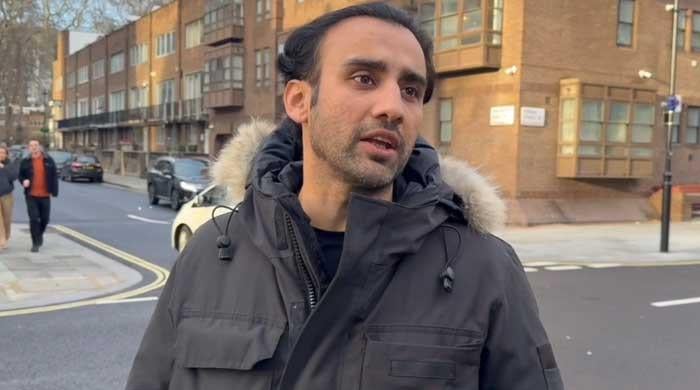Petroleum, diesel prices reduced by Rs2 per litre: Asad Umar
Government reduces kerosene price by Rs3 per litre, light diesel oil by Rs5
November 30, 2018
ISLAMABAD: The government on Friday reduced the price of petroleum by Rs2 per litre, negating the proposed hike by the Oil and Gas Regulatory Authority.
Finance Minister Asad Umar, addressing a press conference here, announced a decrease of Rs2 per litre in petrol and diesel prices.
Price of kerosene oil has been cut by Rs3 per litre, whereas light diesel oil price has been slashed by Rs5 per litre. Price of domestic gasoline has been decreased by Rs2 per litre, he said.
OGRA on Thursday had sought an increase of up to Rs10 in the prices of petroleum products. In a summary forwarded to the petroleum division, the authority had recommended an increase of Rs6.21 per litre in petrol prices, Rs2 per litre in diesel prices, Rs9.91 in kerosene oil prices and Rs7.79 in light diesel prices.
"Global oil prices rose in October, however the government only increased the petroleum prices by half as much that month," Umar told reporters. Petrol prices had been raised by Rs5 per litre in October.
The finance minister said the Petroleum Development Levy (PDL) on petrol has been cut to Rs6.15 from Rs10, while the PDL on diesel has been reduced to Rs6.56 from Rs8.
The sales tax has been reduced from 15 per cent to 4.5 per cent on petrol, and from 27.5 per cent to 12 per cent on diesel. The cuts in sales tax and PDL were made to keep the petroleum prices in check, he explained.
Following the price revisions, petrol will now be sold at Rs95.83 per litre, diesel at Rs110.94 per litre, kerosene oil at Rs83.50 and light diesel oil at Rs77.44, effective from December 1 (tomorrow).
Umar said there seems to be room for further improvement in the prices in the near future. "We are making changes to the taxes but we want to transfer any improvements to the public," he said.
In the global market, oil prices gained on Thursday after the US benchmark slid below $50 a barrel following reports Russia could join a production cut at next month´s OPEC meeting.
The gains in petroleum prices came on a mixed day for global stocks as traders worldwide weighed Federal Reserve comments that were widely seen as dovish on monetary policy.
Robust petroleum supply and a weakening global economic outlook have weighed on oil prices since early October, pushing US benchmark West Texas Intermediate below $50 a barrel for the first time in more than a year.
But oil prices reversed following reports that Russia could join Saudi Arabia and other producers in cutting output at a December 6 Vienna meeting to defend prices.
'Will not control dollar artificially'
Asad Umar said the central bank will not attempt to control the dollar price through artificial means, a few hours after the greenback touched an all-time high of Rs142 in the interbank market on Friday.
"The State Bank of Pakistan is monitoring and determining the exchange rates. In the past, the rupee was maintained artificially. [But not anymore], the State Bank is free to make its own decisions [on the matter]," said the finance minister.
He lamented that the artificial control of the exchange rates destroyed production in Pakistan. "The country cannot export wheat anymore because of this artificial control. Our textile and shoe-making industries were destroyed due to this."
Umar said that the previous government took out loans to maintain the exchange rates. "And this harmed our industries," he noted.
The rupee has depreciated by a massive 36% against the dollar over the past 12 months.
Admitting to the negative impact of the rupee devaluation, Umar reiterated that the government did not wish to approach the International Monetary Fund.
Our exports have increased, so have the investments. Foreign investment has also improved and we will soon see more investments from different countries, he added.




